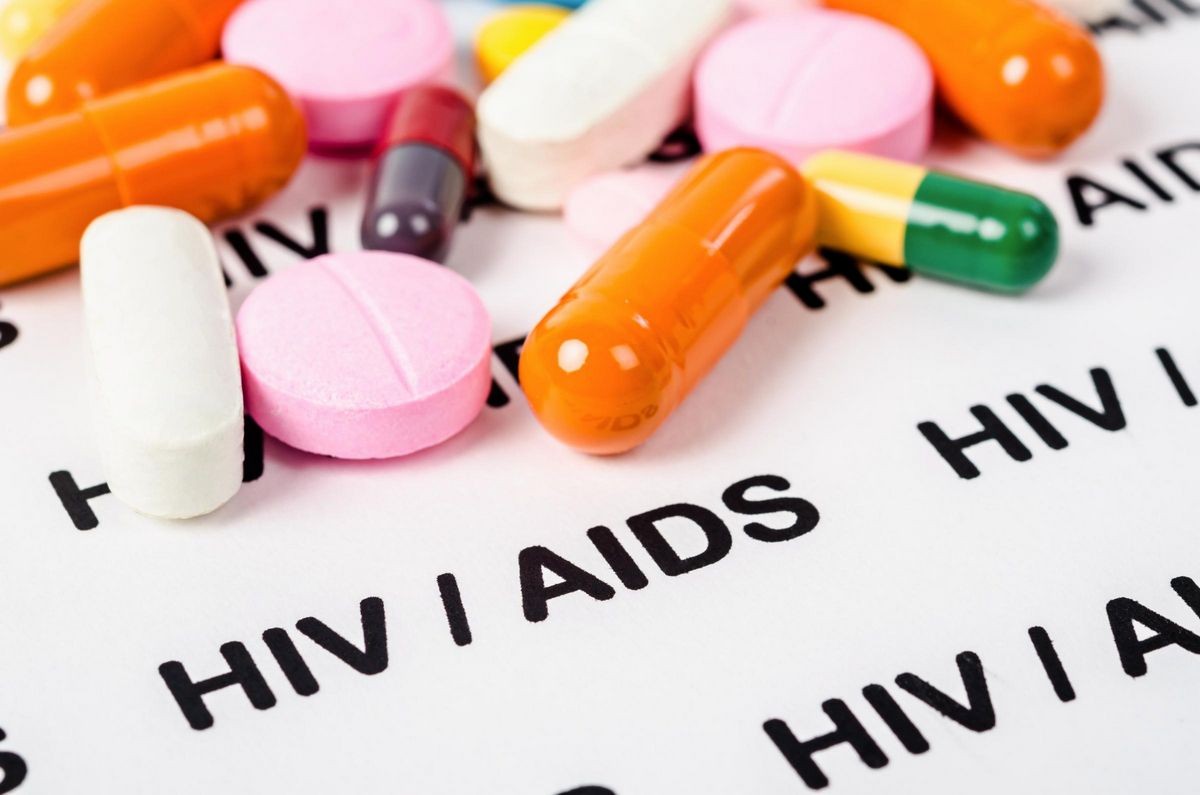
Contents
- 1 HIV Treatment, Medications, Prognosis, and Prevention
- 1.0.1 What are complications of HIV infection?
- 1.0.2 What is the prognosis of HIV infection?
- 1.0.3 Is it possible to prevent HIV transmission?
- 1.0.4 What research is being done on HIV?
- 1.0.5 Are support groups available for people who are HIV positive?
- 1.0.6 Where can people find more information on HIV?
HIV Treatment, Medications, Prognosis, and Prevention
Medicines have been developed to inhibit almost all stages of the viral lifecycle. These are called highly active antiretroviral therapy (HAART or ART) and include:
- Nucleoside and nucleotide reverse transcriptase inhibitors (NRTIs) inhibit the virus’s ability to turn RNA into DNA by blocking reverse transcriptase. An example is zidovudine (Retrovir) or AZT. NRTIs resemble nucleic acids and trick the enzyme into using them, terminating the DNA strand.
- Non-nucleoside reverse transcriptase inhibitors (NNRTIs) block the reverse transcriptase enzyme in a different way from NRTIs.
- Protease inhibitors (PIs) inhibit the protease enzyme that the virus uses to transform protein strands into usable pieces. Viruses made in the presence of PIs are inactive. Ritonavir (Norvir) is used to boost the potency of other PIs.
- Entry inhibitors prevent viruses from entering cells.
- Integrase inhibitors impair the ability of viral DNA to insert into the human genome.
Despite these options, none of these drugs or drug combinations have been proven to cure HIV. The virus can mutate and become resistant to medications, and copies of viral DNA can lie dormant in the human genome, creating a reservoir for resurgent infection.
Treatment depends on viral genotyping, which measures the virus’s sensitivity to medications. Pregnant patients should be treated by experts to reduce the risk of transmission to the unborn child.
Treatment may be individualized to minimize side effects for patients with underlying medical conditions. Early ART can reduce disease progression, inflammation, cardiovascular disease, and kidney disease. However, patients on treatment are not cured and can still spread the infection, though the risk is reduced.
What are complications of HIV infection?
Complications result from impaired immune system, especially CD-4 lymphocyte-mediated immunity. Effective treatment prevents many patients from reaching stage 3 infection. HIV can also directly and indirectly damage various organs, and treatment regimens have side effects from minor problems to serious liver damage.
What is the prognosis of HIV infection?
Without treatment, HIV progresses to AIDS in approximately 10 years, resulting in death within three years. With appropriate treatment, a 20-year-old with HIV can expect to live up to 71 years. Life expectancy is expected to increase with newer treatment regimens and guidelines, but factors like illicit drug use and coexisting conditions can decrease it.
Is it possible to prevent HIV transmission?
Prevention includes avoiding intercourse and exposure to infected persons’ body fluids. Although treatment reduces virus quantity, it does not eliminate transmission risk. Using condoms reduces the risk, but condoms may break or leak. Needle-exchange programs have reduced infection risk in illicit drug users. Treating infected mothers during pregnancy, treating the baby, and avoiding breastfeeding dramatically reduce mother-to-child transmission. Pre-exposure prophylaxis (PrEP) can prevent transmission for high-risk individuals. Health-care workers exposed to HIV-contaminated blood should evaluate if prophylaxis is necessary.
What research is being done on HIV?
Extensive research focuses on vaccines, more effective treatments, easier administration, lower costs, and fewer side effects. Educational programs may help prevent risk behaviors and increase treatment adherence.
Are support groups available for people who are HIV positive?
Many support groups are available. Clinics, state support organizations, hotlines, and online groups can provide information and support.
Where can people find more information on HIV?
For current information, visit http://www.AIDSinfo.nih.gov, supported by the National Institutes of Health.
Medically reviewed by Robert Cox, MD; American Board of Internal Medicine with subspecialty in Infectious Disease
United States. Department of Health and Human Services. "Guidelines for the use of antiretroviral agents in HIV-1-infected adults and adolescents." Jan. 10, 2011. .
United States. Department of Health and Human Services. "Guidelines for the use of antiretroviral agents in HIV-1-infected adults and adolescents." Jan. 10, 2011. .


